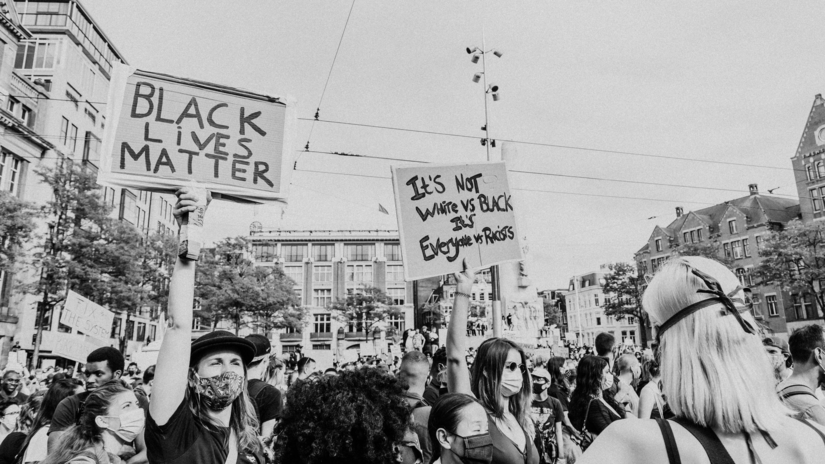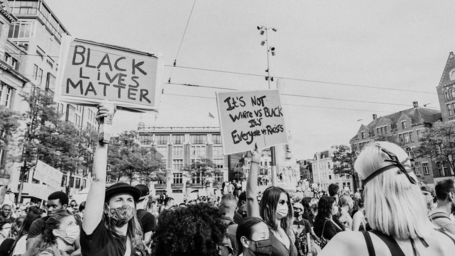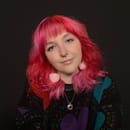“The idea of freedom is inspiring. But what does it mean? If you are free in a political sense but have no food, what’s that? The freedom to starve?”
Angela Davis was born in 1944 in Alabama, where she quickly grew up to be an activist and educator. Growing up in segregated America, Davis took on the role of an activist at a young age. She held interracial study groups in her neighborhood, which were usually broken up by the police. Her neighborhood was also a target of the KKK, and she knew several girls who were murdered in the Birmingham church bombing.
According to HISTORY, Davis joined the Black Panthers and an all-Black branch of the Communist Party, the Che-Lumumba Club, in the 60s while in graduate school. She studied under Herbert Marcuse and also studied abroad before returning to the United States to teach. She was fired from her teaching position at the University of California for being involved with the Communist Party. Once she fought and won her court case against them, she began teaching again at a different campus. America was and is scared of communism, of different perspectives, open mindedness, and someone in a position of authority in the university spreading their views was surely worrisome to Davis’s surrounding peers. I would have loved to be in her class.
In the late 60s, Davis was opposed to the Vietnam War, and began publicly speaking on it and other issues such as the prison-industrial complex, racism, homophobia, and sexism. She was Gus Hall’s running mate for the Comunist Party in 1980 and 1984. In recent years she has supported Democrats such as Obama, Clinton, and Biden. Even though Davis is more left than Democrats, she still supports them instead of dividing the left further.
TIME Magazine says that Angela Davis “has defended America from the clutches of imperialism, exploitation, racism, sexism, poverty and incarceration when few Americans would.” During the trial of George Lester Jackson, a young revolutionary at Soledad Prison, an escape attempt was made on his behalf that resulted in a shoot-out, where multiple people died. Davis was charged with multiple offenses by the state, governed by Ronald Raegen at the time, because the guns were registered in her name, and was put on the FBI’s most wanted list. She served almost two years in jail before she was acquitted. The treatment of Davis as a political prisoner
“In a racist society it is not enough to be non-racist, we must be anti-racist.”
Davis is the author of many books, including Women Race & Class, Are Prisons Obsolete?, Freedom is a Constant Struggle, and many more. She has a new book coming out this year titled Abolition. Feminism. Now. with her partner, Gina Dent, a fellow activist and scholar, and other intellectuals. Her books are extremely influential and valuable for important topics in social justice.
“Prisons do not disappear social problems, they disappear human beings. Homelessness, unemployment, drug addiction, mental illness, and illiteracy are only a few of the problems that disappear from public view when the human beings contending with them are relegated to cages.”
Davis co-founded Critical Resistance in 1997, an organization that pursues the abolition of the prison-industrial complex. In the 90s, she broke away from the Communist Party to join the CPUSA in light of Soviet Union dissolution. Alongside Kimberle Crenshaw, Davis helped form the African American Agenda 2000, an alliance of Black feminists. Davis retired from teaching in 2008, where she was named professor emerita. She is still active and involved in politics and social justice. Davis is an important revolutionary whose texts deserve studying and supporting. Angela Davis, an educator, an activist, a Black lesbian woman, a revolutionary, and so much more, is one of the most paramount people in the 20th and 21st centuries, who will undoubtedly go down in history as a revolutionary icon, among other titles.
“Revolution is a serious thing, the most serious thing about a revolutionary’s life. When one commits oneself to the struggle, it must be for a lifetime.”


